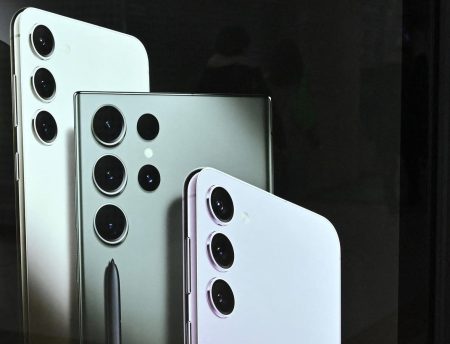The metaverse is arguably the next generation of the internet, forever altering how we experience life online. Don’t believe me? Think the metaverse is somewhat overrated? Or perhaps you’re bored of the hype. Allow me to convince you of the importance of the metaverse.
But first, a very quick refresher: What is the metaverse?
The metaverse is all about persistent, shared virtual worlds – immersive digital spaces where we can work, play, socialize, shop, learn, exercise, and more. Mark Zuckerberg once described the metaverse as being inside the internet rather than just looking at it through a screen, and I think that’s a pretty perfect description.
The Fortnite universe gives us a glimpse of how the metaverse will work. In Fortnite, users aren’t just there to game; they buy outfits and merch for their digital selves, hang out with friends, and even attend virtual gigs (superstars like Ariana Grande have performed in Fortnite). In the future, social media companies, brands, education institutions, and employers will operate their own virtual worlds where people can come and enjoy a more engaging online experience. Crucially, the metaverse will – in theory, at least – unite these disparate worlds into a persistent, connected experience where you can seamlessly move between platforms and experiences, taking your personal digital avatar, preferences, and cryptocurrency with you. Think of the immersive virtual world depicted in the movie Ready Player One, and you’re on the right track.
With that quick definition out of the way, let’s explore why you should care about the metaverse.
Online experiences will become more immersive
Extended reality (XR) technologies like virtual reality and augmented reality are key drivers of the metaverse. Thanks to XR technologies, online experiences will become much more realistic and engaging – and this will be key to the growth and success of the metaverse. For example, instead of just following your favorite sportswear brand on a social media platform like Instagram, in the metaverse era, you might pop on a VR headset and go to that brand’s virtual hub. There, you could enjoy immersive brand experiences – like games, new product launches, exclusive events with celebrities (or rather, the celebrities’ digital avatars), and so on.
More and more of everyday life will take place in the metaverse
In the metaverse, we’ll be able to do anything we can do in the physical world (and more). We’ll be able to work remotely while feeling like we’re in the same room with colleagues. We’ll be able to socialize with friends and family on the other side of the globe in a way that’s more engaging than Zoom calls or social media chats. We’ll enjoy a better online shopping experience, viewing products in 3D instead of on a flat screen. Gaming will feel more realistic than ever. More gigs will take place in virtual spaces. Students learning remotely will feel like they’re in the lecture hall with their teacher. You get the idea – as the metaverse evolves, more and more of our everyday lives will take place in shared virtual worlds.
The metaverse may end up bigger than the real world
Bear with me because this is a big claim. But we already have cities like Dubai working on creating digital replicas of real-world places for the metaverse – digital twins if you will. Plus, we’ll have social media companies, brands, employers, and schools operating their own virtual worlds – virtual places that perhaps don’t exist in the real world. Put all this together, and it’s not a wild leap to suggest that the metaverse will end up bigger than the real world. It’s not going to happen overnight, but eventually. It’s absolutely possible.
The metaverse will influence the physical world around us
The metaverse will be like being inside the internet, but it will also bring the internet and digital elements out into the real world. In other words, it will change how we move through and interact with the real, physical world around us. Walk into a physical store, for example, and augmented reality mirrors will let you digitally “try on” clothing and see – in a realistic way – how those clothes will look on you without you having to get undressed. This sort of thing is already happening – consider how you can digitally place items of furniture in your room using the IKEA app and see how it would look in real life before you buy. This is a taste of what’s to come.
And finally, the metaverse will transform businesses
Make no mistake, the metaverse is where brands will connect with their audiences. We’re already seeing this happen, with brands like Nike and Vans setting up their own virtual worlds. Vans, for instance, set up a virtual skatepark on the Roblox gaming platform. Mcdonald’s is, according to patents filed, preparing to create virtual restaurants where people can hang out and order food to be delivered to their (real-world) home. Clearly, the metaverse offers a lot of potential for brands to connect with their audience, increase brand engagement, sell products, and find new advertising opportunities. We will even see more brands create digital-only products that exist purely in the metaverse (think digital cars, homes, clothes, and designer furniture).
And in terms of internal business operations, employees will be able to work and train in the metaverse, in virtual co-working spaces or digital replicas of real-world offices. And, of course, there will be new ways to collaborate on projects virtually in real time.
I remember in the early 2000s, even some big brands said they didn’t need a social media presence, and now every business – big and small – is on social media. I truly believe the same is going to happen with the metaverse. That, if nothing else, is why everyone should care about the metaverse.
Read more about these topics in my new book, The Future Internet: How the Metaverse, Web 3.0, and Blockchain Will Transform Business and Society. And don’t forget to subscribe to my newsletter and follow me on Twitter, LinkedIn, and YouTube for more on the future trends in business and technology.
Read the full article here










